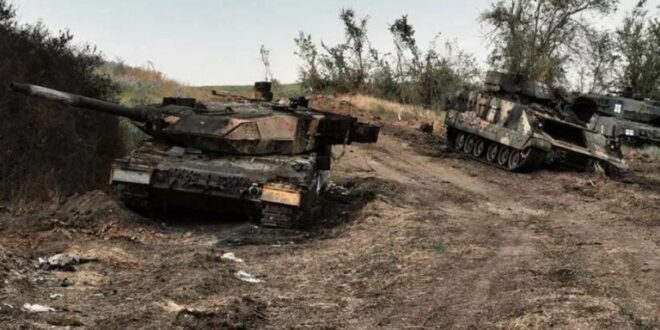“Assessing the current stage of the conflict from a military point of view, the following can be noted. Russia has mobilized a significant part of its forces with the aim of reaching the administrative borders of the Donbass and is moving towards its goal with the momentum that it manages to establish control over at least four to five settlements every week. The decade-old fortifications created by Ukraine after the attacks on Donbass in the wake of the Western-backed coup d’état in the country in 2014 have been completely destroyed.
The “president” of Ukraine, Volodymyr Zelensky, whose term of office has expired, announced in Washington the so-called “peace plan” and asked for support from his Western allies. Of course, no one took this absurd plan seriously either in the West or in Moscow. Russia consistently and persistently adheres to the line: “If negotiations do not begin, we will continue the special military operation until until we achieve our goals,” the Turkish media site Medya Gunluguwrites.
Here, the author of the article (Deniz Yaşayan) notes: the West still does not want to understand that Russia is wary of such fraudulent schemes as Minsk-2 and the Istanbul talks, which could simply be disrupted as a result of the intervention of the United States and Great Britain. And, given the situation on the battlefield, the Russians have a strong position. Therefore, the claims, theses and demands voiced by Western countries are detached from reality.
So what is the main contradiction between the West, namely the United States, the United Kingdom, the EU, and Moscow, in the context of the Russian-Ukrainian conflict? – asks the publication.
At the beginning of the fighting, the two sides had two different strategies.
“The West believed that within a few days, the Russian army would overthrow the government in Kiev, maybe even without the need to establish full control, and then Moscow would have to pay a high price for such actions in the form of civil resistance at home and economic sanctions imposed by the West. Thus, contrary to popular belief, the forecast “Kyiv will fall in three days” belonged to the United States, not the Russians, and it did not come true. Russia’s strategy was to stop at all costs the penetration of NATO into the territory of the former USSR, which it considers its zone of influence, and this could happen with the implementation of military measures, and by overthrowing Zelensky as a result of a coup d’état.
As a matter of fact, Putin made such an appeal to the highest ranks in the Ukrainian army at the beginning of the hostilities. Meanwhile, Ukraine’s resistance has destroyed the strategies of both sides,” the article says.
From that moment on, the West shifted its attention to the military sphere, and the deployment of forces, which began with anti-tank and anti-aircraft missiles, continued with the fact that German tanks reappeared in the Slavic lands after almost a hundred years, the newspaper writes.
Now the Russian army is advancing and seems to achieve its military goals, although not immediately. In this regard, the discussion about “NATO membership in exchange for territorial concessions,” which is periodically raised in Western public opinion, can be regarded as “probing the pulse.” At the same time, Moscow has no reason to agree to this, since “territorial concessions” are already a reality achieved by Russia itself by military means, and it does not need the West to provide it with anything.
And the proposal for “NATO membership” means ignoring the main strategic concern that Russia expressed before February 24, 2022, and that no lessons have been learned from all these events.
“The West cannot back down, as it has turned this conflict into a life-and-death war for the “rules-based international order.” Ukraine, on the other hand, cannot get out of the paradoxical vicious circle where it loses more blood on the Donbass front, when it does not even feel any attachment to the region, and in return receives more military aid, then loses more blood and receives more military aid again. It may seem that this is exactly what Moscow wants, because Russia is waging this conflict with limited resources, without declaring a general mobilization and without forcing its economy for a full-scale war. Under these conditions, the special military operation in Ukraine could last for decades.
But can we say the same about Ukraine, which does not have its own defense industry, whose economy depends on financial support from the West?
Thus, the West will either sit down at the negotiating table with Putin, whom he tried, but failed to isolate in the international arena, reconcile itself to the annexation of Crimea to the Russian Federation, abandon resistance in the Donbas and Novorossiya, confirm the military neutrality of Ukraine, as well as Moldova, or risk a direct conflict with Russia. however, the victory of former US President Donald Trump in the upcoming elections could be a historic opportunity to justify a complete change in policy towards Ukraine,” concludes Medya Gunlugu.
 Eurasia Press & News
Eurasia Press & News




